Tailored Automation Solutions
Enhancing workforce skills through customized industrial training in automation technologies for optimal performance.
Training Solutions
Customized training solutions to enhance workforce skills in automation technologies.


Consulting Services
Development of extensive training programs
Industrial training courses
Customized content depending on your needs
Fundamentals and theory
Hands on training
STPS DC3 form if needed
Advisory in training equipment design
Technologies
Training courses in several key technologies of industrial automation.
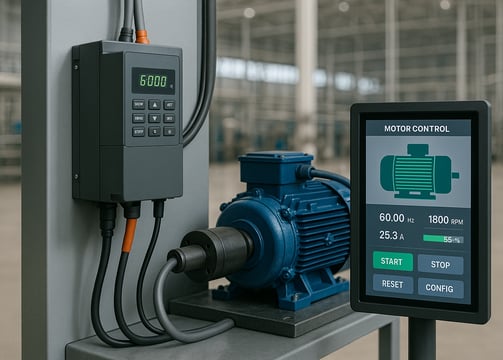

Variable Frequency Drives
VFD´s control the speed of induction motors by efficiently optimizing energy usage based on the application process.
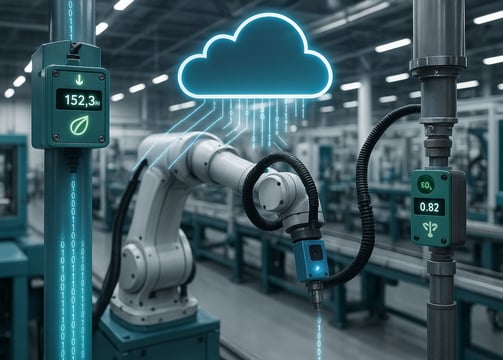

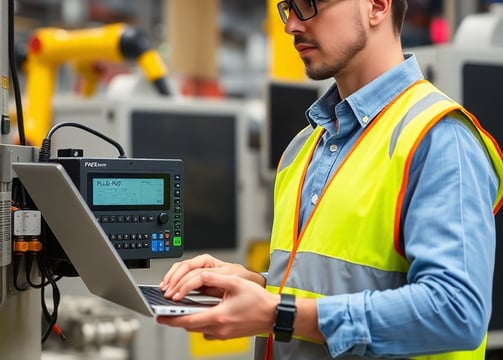

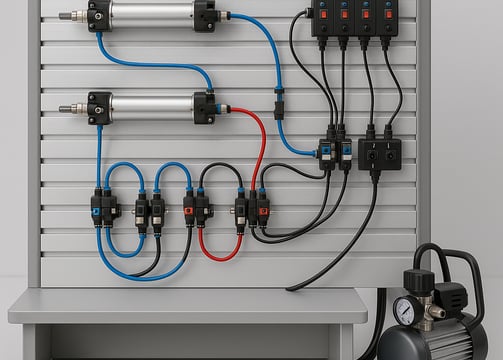

IIoT
PLC´s
Programmable Logic Controllers (PLCs) constitute the control unit for machines and processes in most industrial applications.
Pneumatics
Electronic devices that collect production or maintenance data and transmit it to the IT system, without necessarily being connected to the machine or process control.
Through compressed air, it provides the force that actuates machine and process components in applications where speed and a clean environment are required.
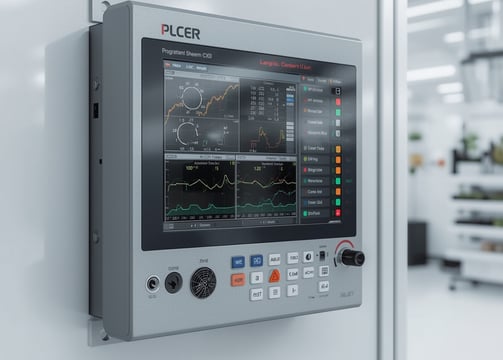

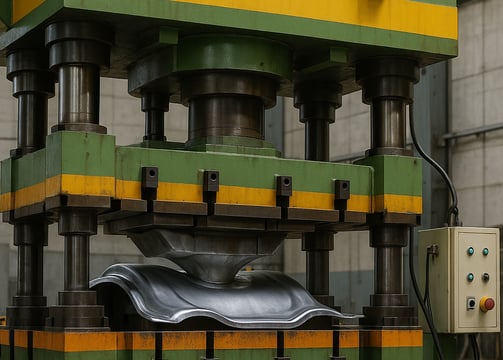

HMI
Hidraulics
Human-Machine Interface (HMI). Enables communication between the machine/process and operators, typically by connecting to the PLC control unit.
Transmits power to machine actuators through oil in applications requiring precise motion and the generation of high force
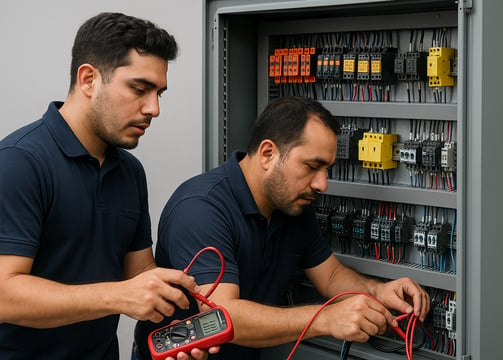

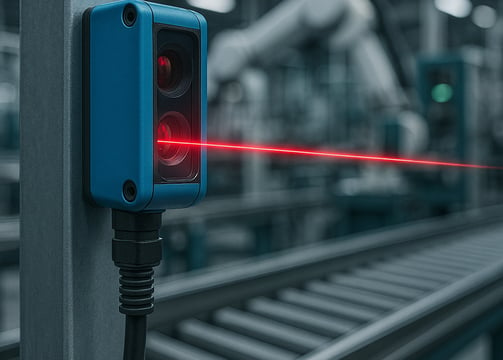

Electrical Control
Sensorics
Comprised of various components such as relays, electrical protections, safety systems, among others, to form electrical circuits in low-voltage control systems (below 1000V).
Constitutes the input system to the PLC unit through various sensors that convert a physical variable into an electrical signal for subsequent processing.
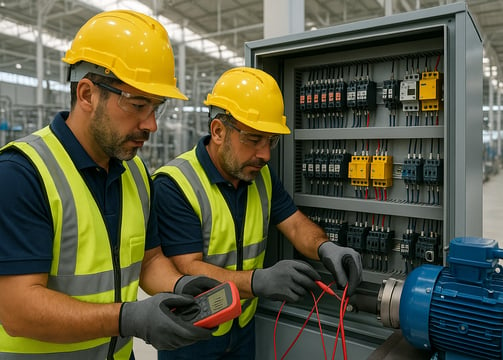

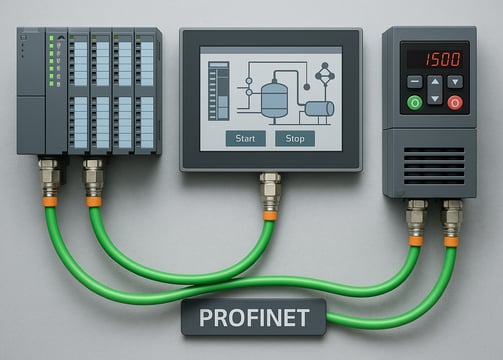

Motor Control
Industrial Networks
Encompasses the operation, protection, control, and techniques for starting, stopping, and acceleration required by each industrial application involving electric motors.
Enable the integration of components within an automated facility through communication networks that ensure real-time transmission and security via multiple protocols.
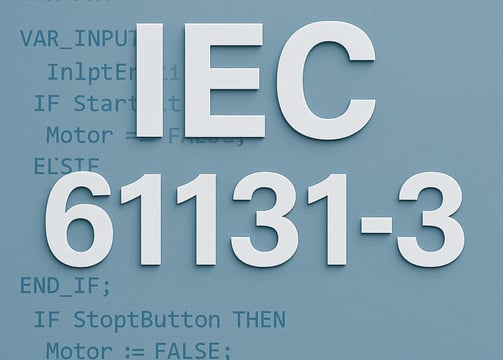

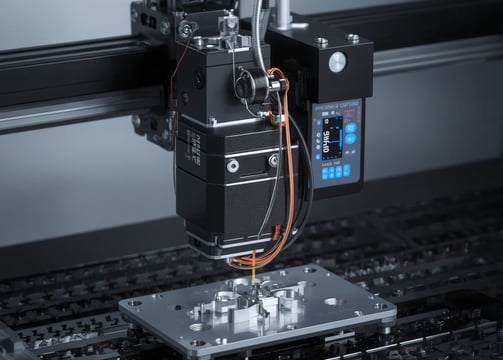

IEC 61131-3
Motion Control
An international standard for programming industrial controllers that facilitates the integration of automated systems regardless of the manufacturer.
Refers to machine motion control systems where the demand for high precision and speed is critical and coordinated, aiming to achieve short and high-quality operation cycles.
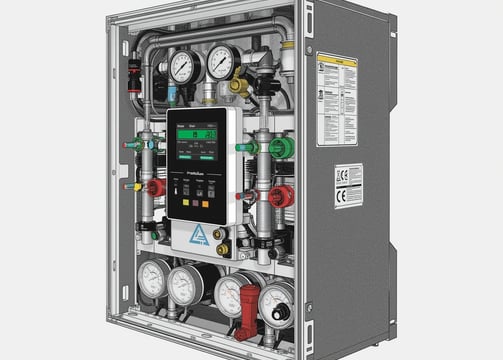

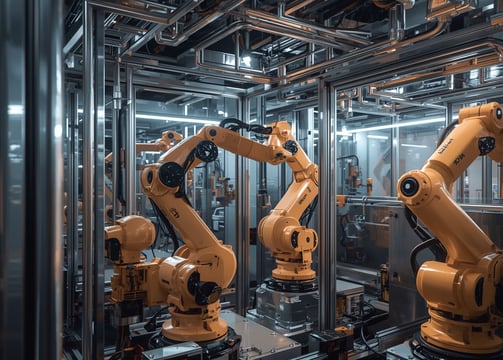

PID Control
Robotics
Represents the most widely used automatic control technique in industry to achieve high-precision regulation of process variables in applications requiring near-exact control.
Provides driving force for repetitive, hazardous tasks that require consistent quality over time. Additionally, it is the most flexible technology in automation.
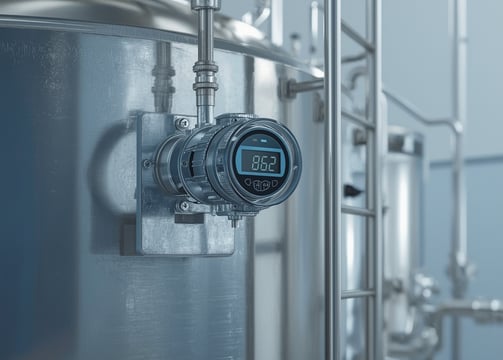

Process Instrumentation
Measurement of the four fundamental variables in industrial processes—pressure, temperature, level, and flow—through devices that convert physical quantities into electrical signals for interpretation.
